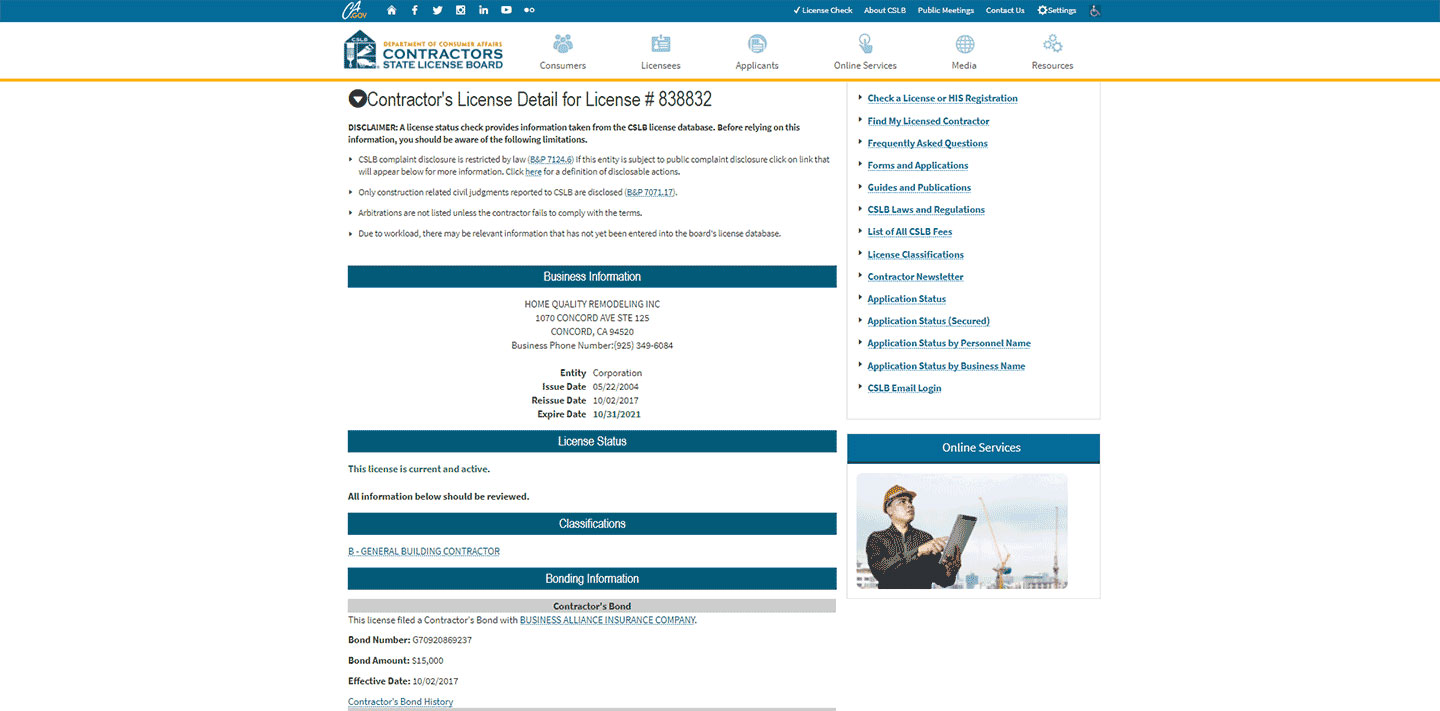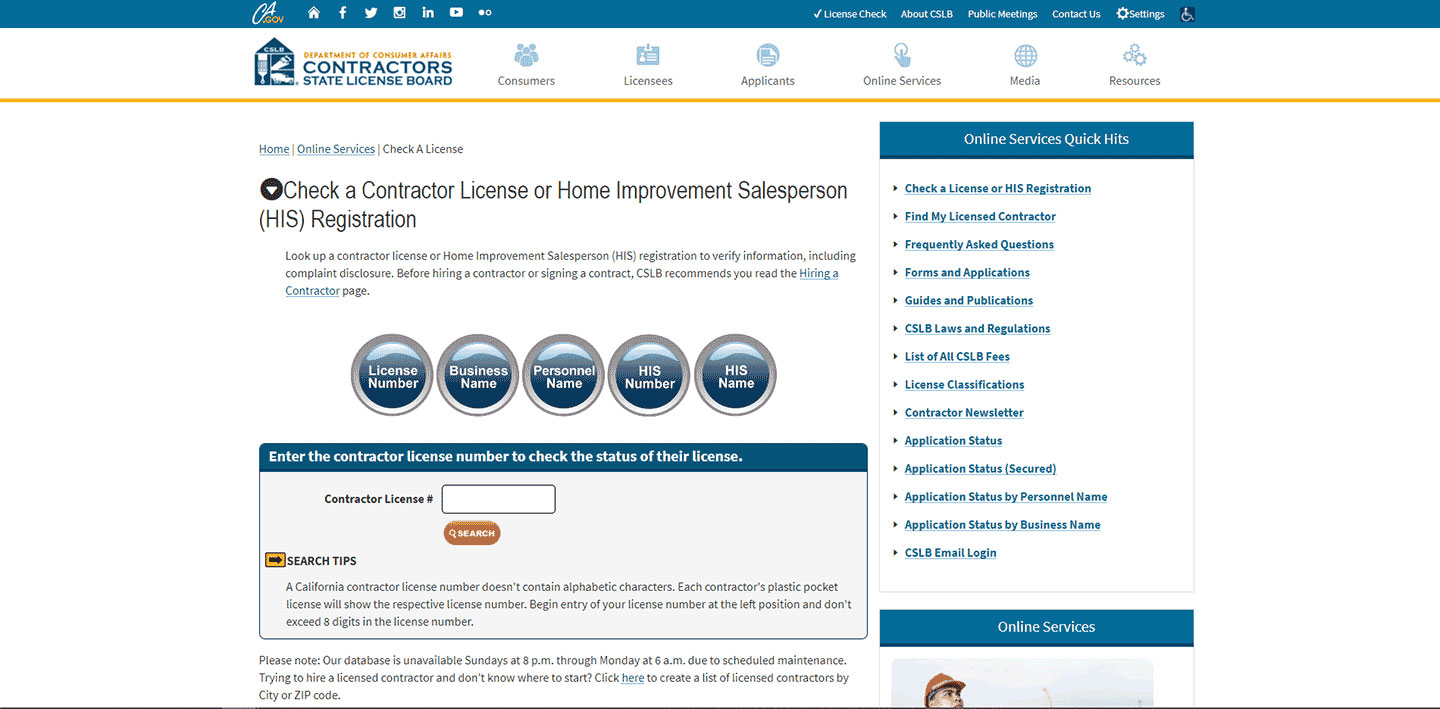January 14, 2021

Why work with a contractor who is licensed, insured, and bonded?
There are approximately 300,000 licensed contractors in the state of California not counting the number of unlicensed contractors that do business in the state. The question we will address is how do you pick the right contractor to work with?
In this article, we’ll cover how you can verify a contractor's license and insurance details in the state of California and what protections working with a licensed and insured contractor provides you.
- You’ll have legal recourse in case something goes wrong:
In the state of California, the Contractor State License Board (CSLB) can act as the first point of contact for the homeowner in the case of a dispute with a general contractor. The CSLB can investigate the claims of the homeowner and in the case where the homeowner’s claims are valid, the CSLB can give advice to the homeowner on their options for recourse and suspend or issue warnings that will remain on the contractor’s record. But in the case that the homeowner works with an unlicensed contractor, the CSLB doesn’t have the ability to investigate, stand as witness against, or take action against the unlicensed contractor. Typically, the only option available to the homeowner is to find the unlicensed contractor and either ask them to fix the problem or take civil action against them. The question then is can the homeowner even sue the unlicensed contractor to sufficiently cover the damages caused.
- You’ll have insurance coverage for damages or malfunctions:
General contractors that are licensed with the CSLB are required to carry a minimum of $1M in general liability insurance and a surety bond of $15,000. A licensed contractor can use their general liability insurance to cover claims that property damage or bodily injury claims. The surety bond is another option for the homeowner to pursue recourse that has a financial payout. Working with an unlicensed contractor would not only mean you have no assurances when pursuing financial compensation for damages but it also puts the homeowner on the hook. If the unlicensed contractor is hurt in the property or if there is bodily damage or property damage that is the result of the unlicensed contractor’s work the homeowner will be held liable.
Since our team at Home Quality Remodeling routinely handles properties in the Bay Area where property values are either over or right at the million dollar mark, we go the extra mile by carrying $2M in general liability insurance, an additional $15K for our surety bond and provide all our worker with Worker’s Compensation insurance.
- How to verify your contractor has a licenses and see their insurance details:
Ask your contractor for their Contractor's License # and type that into the CSLB’s ‘check a license’ function. In that page, check to make sure that the name the contractor is operating under matches the details that come up from the CSLB. Under the same page, you should see the details of their general liability insurance coverages, surety bonds, and if they carry it, Workers Compensation Insurance. In the case where you can’t find these details under the CSLB page, your contractor isn’t carrying coverages approved by the CSLB.

If you're planning on getting started on a remodeling project, visit our home remodeling page to learn more about our process.

